Express Concert: Haydn’s Evening Symphony with Abel Selaocoe
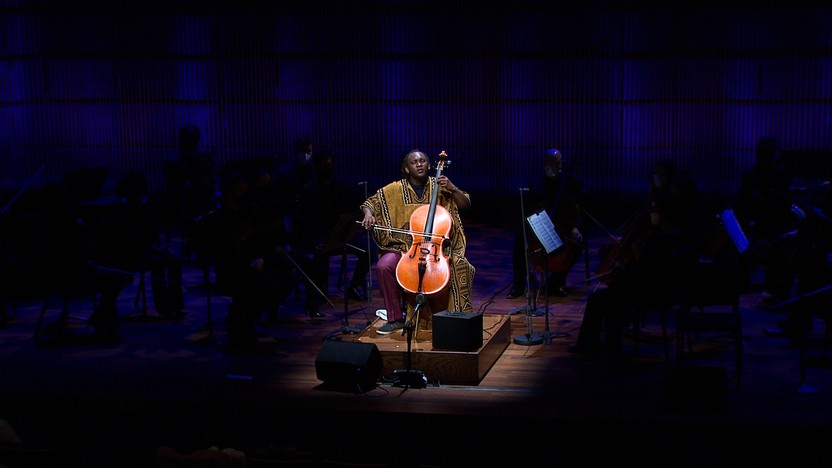

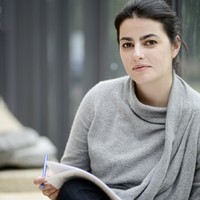
(Duration: 10 min)
From the time of her first piano lessons at age seven in Bulgaria, Dobrinka Tabakova enjoyed improvising at the keyboard. At eleven, when her family moved to London, she began to study composition formally, and she went on to earn degrees at the Guildhall School of Music & Drama and King’s College London. Championed for years by some of Europe’s finest musicians, Tabakova broke through to a wider audience with the release of her debut album on ECM Records, String Paths, which earned her a Grammy nomination in 2014.
That disc included Tabakova’s 2002 string trio Insight, written for a group of conservatory classmates. “The main objective of this string trio composition,” Tabakova wrote in a program note, “is to show the unity which exists within the string trio. I was most fascinated to explore string techniques transforming the trio sound to one of a completely different instrument. That is why there is a suggestion of an accordion sound (particularly heard at the beginning) or that of a brass fanfare. The title is a reminder that aiming to visualize sound is one of the most satisfying experiences our imagination can give us through music.”
Aaron Grad ©2023
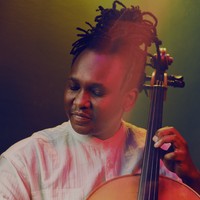

(Duration: 8 min)
Tshepo means faith, hope or trust depending on the context in which it is used. Consider faith in a universal rather than specifically religious sense — as an expression of hope, and as a safeguard against life’s challenges and unpredictabilities. The piece begins with Selaocoe both singing and playing, accompanying his elegant vocal melody with a cello bassline, before slow-moving, almost hymn-like harmonies, and a richer return for his opening music.
Abel Selaocoe ©2023
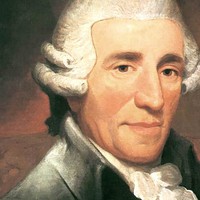
(Duration: 24 min)
Franz Joseph Haydn did not come from a particularly musical family, but he showed early promise when he began singing for the church choir in Rohrau, a small village in lower Austria. At six he moved to a nearby town to live and study with a relative who ran a school and choir, and at eight he was recruited for the choir school at St. Stephen’s Cathedral in Vienna, where he also studied keyboard and violin. His education ended when his voice broke at seventeen, and he left school to scrape by as a freelancer in Vienna, giving lessons and performing while continuing to teach himself composition.
Haydn’s first stable job was to serve as Kapellmeister to one Count Morzin, possibly starting in 1757, but within a few years that job dissolved amid the count’s financial distress. Then in 1761, the 29-year-old Haydn received a lucrative job offer from Prince Paul Anton Esterházy, head of one of Austria’s richest and most powerful noble families. The Esterházy court already had a Kapellmeister, the aging Gregor Werner, so Haydn was named Vice-Kapellmeister, a position he held for five years until Werner’s death.
Haydn, who had written only a handful of symphonies before his Esterházy appointment, wrote about two dozen in his years as Vice-Kapellmeister, taking full advantage of the world-class private orchestra at his disposal. His first Esterházy symphonies were a trilogy connected to times of day — “Le matin” (Morning), “Le midi” (Noon) and “Le soir” (Evening) — an idea that may have been suggested by Prince Paul Anton.
Like its siblings, the “Evening” Symphony includes ample solo passages in the manner of a Baroque concerto grosso, taking advantage of the gifted Esterházy players. A new color that arrives in the slow movement is a solo bassoon, which works with the solo cello as a tenor-range counterpart to the two solo violins in the soprano register. The menuetto adds the distinctive growl of a solo bass in the contrasting trio section. As a bookend to the sunrise that begins the trilogy, the finale of this symphony conjures a stormy night with descending swoops and arpeggios.
Aaron Grad ©2023

(Duration: 8 min)
Affirmations for me means repetition of prayer, sending yourself into a spiritual realm by repeating your desires, your yearnings, your need at a particular time. These affirmations are an invocation for healing. They begin with a Sesotho phrase that means "the pains of the world seem never-ending". This continues in a prayer to the ancestors asking for these wounds to be healed. You might ask yourself: if I say "heal" as many times as I can, will the world heal? Will the world manifest this sound and this song?
Abel Selaocoe ©2023
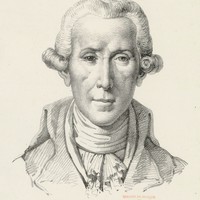
(Duration: 12 min)
Don Luis, the younger brother of Spain’s King Charles III, was an avid musician who participated in his own string quartet. He hired the Italian cello virtuoso Luigi Boccherini as a court composer, and he also added the star performer to his ensemble, which is how Boccherini came to write more than a hundred quintets for two violins, viola and two cellos.
Boccherini spent the rest of his life based in Madrid, a city he portrayed lovingly in this quintet known as Night Music of the Streets of Madrid. The scene painting is quite specific, starting with the tolling of church bells and the rat-a-tat rhythms of a snare drum, signifying the procession of the military’s night watch. With the strings imitating the sound of a guitar, a hearty minuet represents the dancing and singing of blind beggars. There is a prayerful invocation of the Rosary, and then another dancing movement with guitar-like strums places the melody in the tenor range of the first cello — Boccherini’s own part. The final section marks the retreat of the night watch, again using rapid tremolo bowing to represent the military drums.
Aaron Grad ©2023
Our Express Concerts are 60-75 minutes of music without intermission. Learn more at thespco.org/express.
Get driving directions and find nearby parking.
Find dining options close to the venue.
View seating charts to find out where you'll be seating.
SPCO concerts are made possible by audience contributions.
For exclusive discounts, behind-the-scenes info, and more:
Sign up for our email club!
